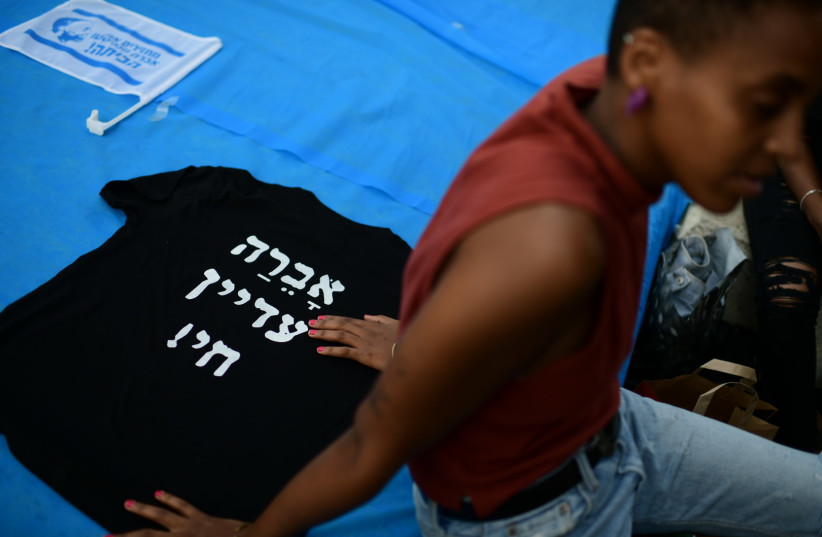Israel knew that Avera Mengistu, held captive in Gaza by Hamas since 2014, was alive, Prime Minister Benjamin Netanyahu said on Tuesday.
Netanyahu uttered the first public confirmation of the matter one day after Hamas released a video that depicted Mengistu, an Israeli civilian, speaking a few short sentences. There were no visuals in the video by which to date the clip.
“Yesterday, we received another confirmation of what we knew all along: Avera is alive,” Netanyahu said. “This is a young man who is not in good health. Responsibility for his fate rests entirely on Hamas.”
He did not reference Hisham al-Sayed, the other Israeli held captive by Hamas, since 2015. Hamas released a video of Sayed in April of last year that could be dated. Both men are believed to be suffering from psychological illness. Hamas is also presumed to be holding the bodies of two Israeli soldiers killed in the 2014 Gaza war, Hadar Goldin and Oron Shaul.

Netanyahu: Israeli efforts to return prisoners of war ongoing
“Israel has not stopped its efforts to return Avera Mengistu and the rest of our captives and missing persons,” Netanyahu added.
The prime minister spoke after a visit to the Shin Bet’s Samaria Division in the West Bank with Shin Bet (Israel Security Agency) head Ronen Bar to get a security assessment from officers stationed there.
The Foreign Ministry stepped up its campaign for the release of the two men and the return of the two bodies after the video’s publication sending letters to the Pope, the UN Secretary-General Antonio Guterres, the World Health Organization and the Red Cross asking for their increased involvement in returning the captives. In December the Pope met with representatives of the four families in the Vatican.
Foreign Minister Eli Cohen said that “bringing the bodies of the soldiers to their graves in Israel and returning Israeli citizens to the bosom of their families is a moral obligation … We will continue to work with the international community to expose the cruel face of the terrorist organization Hamas until they are returned home.”Netanyahu returned to office late last month, after a year and a half as opposition leader. The release of the two Israeli citizens and the bodies of two Israeli soldiers has been on his agenda for most of the time they have been held captive.
“Israel has not stopped its efforts to return Avera Mengistu and the rest of our captives and missing persons,”
Prime Minister Benjamin Netanyahu
Negotiations have been held through Egyptian-brokered indirect talks, but no agreement was ever reached. One of the obstacles has been the Hamas demand for the release of prisoners who have killed Israelis in terrorist attacks.
Such prisoner releases are often highly controversial, given that historically, some of those released in past swaps have carried out other attacks.
Netanyahu’s predecessor, Yair Lapid, who was in office only for the second half of last year, addressed the issue in an interview with KAN News.
In the interview, he said the first meeting he held as prime minister was about the release of these men, and that was not an accident.
“We made efforts, just as past governments did,” Lapid said. “But everyone gets stuck in the same loop where you are not willing to endanger Israel’s security by releasing dangerous people with blood on their hands.”
To explain how complex the matter is, Lapid referenced the 2011 deal to release Gilad Schalit in which Israel released 1,027 Palestinian prisoners. Schalit was kidnapped by Hamas in 2006, while serving as an Israeli soldier along the Gaza border. He was held for five years.
The deal had been “very popular” at the time but “everyone understands today that too high a security risk was taken,” Lapid explained.
It’s not that “it’s impossible to do a deal,” but the issues here are complex, he explained, indicating that the political price of the agreement was too high.
